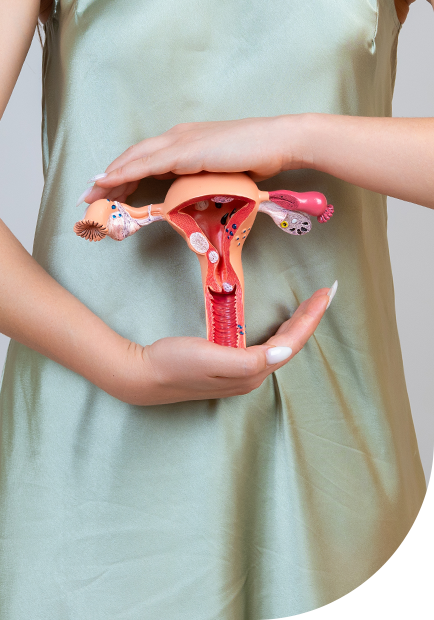Endometriosis

Endometriosis occurs when the tissue that normally lines the inside of the uterus (the endometrium) grows in other places of your body where it doesn’t belong, such as on the ovaries, fallopian tubes, outside surface of the uterus, bowel, bladder, and rectum.
Endometriosis is typically characterized by pelvic pain as its most common symptom. Often, the pain coincides with menstruation. Additional symptoms include infertility, irregular bowel movements, including diarrhea and bloating, heavy, prolonged, irregular inter-cycle bleeding, and bladder or bowel symptoms.
There is an estimated 50% chance that a woman with infertility problems also has endometriosis. Endometriosis can be hidden from some women until pregnancy difficulties make them aware of their condition. As a result of endometriosis, the fallopian tubes may be damaged or scarred, stopping the egg from traveling down the tube. In addition, it lowers the chance of conception by making it harder for sperm to travel along the tube to the egg. Other possible reasons for infertility include chocolate cysts (endometriosis of the ovary) affecting ovulation and eggs that don’t develop properly and are less likely to be fertilized. It is also thought that the body produces toxins, which affect the sperm and the developing embryo.
Contact your reproductive medicine specialist to know more about diagnosis and management options.
